Any student worth their salt knows the value of “industry experience”. Marrying convenience with opportunity is a novel initiative by the Software Engineering Research Centre (SERC) at IIIT-H. Let’s find out more about it.
A productive combination of academics and hands-on experience is essential to round off and complete any student’s education, particularly in the technical and engineering sphere. If internships were not so ‘happening’ previously, they became a necessity November 2018 onwards when the All India Council for Technical Education (AICTE) made it mandatory for every engineering student to have 14-20 credits of internships during their 4-year course.
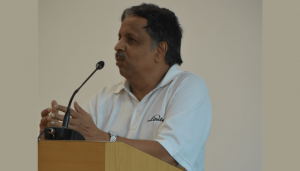
AICTE Mandate
AICTE took this step, mainly to give Indian companies a much-needed edge globally. While an internship is automatically (and erroneously!) equated with work in an industrial setup, the AICTE Internship policy has specified that “during the summer vacations, after the 2nd Semester, students are required to be involved in Inter/ Intra Institutional Activities”. These activities may involve training with higher institutions, undergoing soft skill training; contribution at incubation/ innovation /entrepreneurship cell of the institute; participation in conferences and workshops, working on research projects within the institutes and even includes participation in all the activities of Institute’s Innovation Council for eg: IPR workshop/leadership talks/ idea/ design/ innovation and so on. Similarly, after their 4th/ 6th semester, students ready for industrial experience may choose to undergo Internship, Innovation or Entrepreneurship-related activities. They can work on these activities in startups or with industry/ NGO’s/ Government organizations/ Micro/ Small/ Medium enterprises to make themselves ready for the industry.
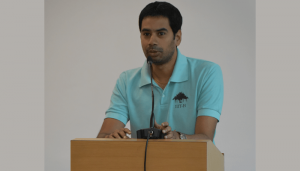
SERC Initiative
For the last couple of years, SERC has been inviting students to work as interns on the Virtual Lab project, an initiative of the Ministry of Human Resource Development (MHRD), Government of India where web-enabled experiments are designed for remote operation and viewing across India. (See previous blog post here) “This time we wanted to run a programme that was larger than the virtual labs project and one that subsumed the virtual labs project in a way. As an initiative of SERC, it ties into the work we initiate with college students every summer. The other aspect to it is that I’m also interested in open source and trying to see how we can promote and combine open source with education,” says Prof. Venkatesh Choppella, who is driving the Student Remote Internship Program (SRIP).
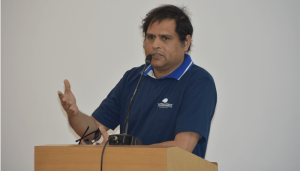
Work From Anywhere
SERC has designed a unique program, which will not only help in improving the students’ technical capabilities, but will also help them become “industry-ready”, and give them the self-confidence to face the real world. The beauty of this model is that, while the students complete their required 240 hours of work, they can do so within the comfort of their home. This addresses the limitations of most internships, such as academic schedules clashing, location constraints and full capacity at organisations. These 240 hours can be completed over an elapsed time of 10/11 weeks, which would give the students flexibility to work at their own time and pace.
The program kickstarts with the students first being brought to the IIIT-H campus for a two-day boot camp, where basic concepts in Computer Science and software engineering practices and documentation are taught. They get to interact and build a rapport with their mentors, who would then be guiding them remotely for the next several weeks. They are allocated their projects, and given guidance about how to proceed from there. “Our role is very simple – it is to see that students get trained at the bootcamp. They’re assigned projects and we monitor and mentor them. We have a team of mentors for the students pretty much round the clock,” states Prof. Choppella.
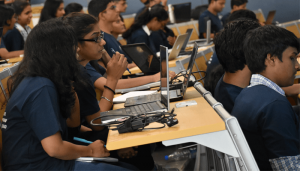
Guidance And Flexibility
The mentors for the SRIP Program are available for 12 hours every day for any guidance that the interns might need in completing their projects. However, the interns are also encouraged to branch out on their own, search the internet for resources, and only approach the mentors as a last resort. Interns are evaluated on a daily basis and receive continuous feedback from the mentors.

With selected students coming from various colleges and backgrounds, there is flexibility given to work at the pace which suits them, without any undue pressure to perform tasks within a given deadline. This is expected to increase their learning, despite their starting point of knowledge.
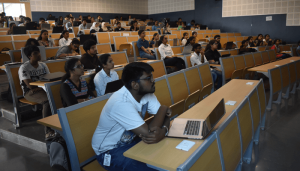
Industry-Ready
The SRIP team believes that with hands-on experience in JavaScript, Python, GitHub, Linux and other technologies, coupled with the problem-solving skills picked up during the internship, students will be ready to face the real world.
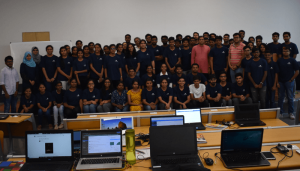
For more information on the SRIP, see here.


